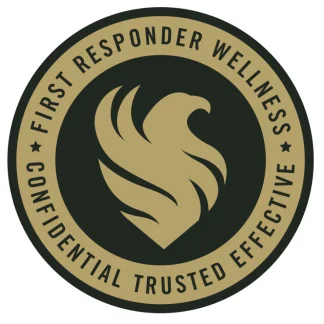Hotel California by the Sea
Hotel California by the Sea - 17th Street is dedicated to provide outpatient ser...
First Responder Wellness, located in Newport Beach, California, offers medical detox, residential treatment, intensive outpatient programs (IOPs), and general outpatient treatment for first responders in need of mental health and/or alcohol and drug rehab. Services include dual-diagnosis care, biofeedback, a family program, and case management.
During medical detox, participants are monitored 24/7, and medical professionals are available to provide care for withdrawal symptoms. Residential treatment at First Responder Wellness includes individual, group, and family therapy; case and medication management; 12 Step programs; addiction education; and relapse prevention. They also offer classes for coping skills, emotional and stress management, and occupational therapy.
The IOP meets several times per week for several hours per session. General outpatient care meets a few hours per week. In both cases, participants live at home outside of treatment and are able to work or attend school. Services are similar to residential treatment, and outpatient care is often a step-down after completing a residential program.
First Responder Wellness accepts multiple insurance plans, including Aetna, Beacon, Blue Cross Blue Shield, First Health, HealthNet, Cigna, HMC Healthworks, and MHN. Be sure to verify coverage information and out-of-network benefits by contacting your insurance company.
Contact us for more information: (888) 443-4898

Connect with First Responder Wellness by calling their admissions team directly.
(888) 443-4898 Website Get DirectionsThe Joint Commission, formerly known as JCAHO, is a nonprofit organization that accredits rehab organizations and programs. Founded in 1951, the Joint Commision's mission is to improve the quality of patient care and demonstrating the quality of patient care.
Joint Commission Accreditation: Yes
Research clearly demonstrates that recovery is far more successful and sustainable when loved ones like family members participate in rehab and substance abuse treatment. Genetic factors may be at play when it comes to drug and alcohol addiction, as well as mental health issues. Family dynamics often play a critical role in addiction triggers, and if properly educated, family members can be a strong source of support when it comes to rehabilitation.
In individual therapy, a patient meets one-on-one with a trained psychologist or counselor. Therapy is a pivotal part of effective substance abuse treatment, as it often covers root causes of addiction, including challenges faced by the patient in their social, family, and work/school life.
Trauma therapy addresses traumatic incidents from a client's past that are likely affecting their present-day experience. Trauma is often one of the primary triggers and potential causes of addiction, and can stem from child sexual abuse, domestic violence, having a parent with a mental illness, losing one or both parents at a young age, teenage or adult sexual assault, or any number of other factors. The purpose of trauma therapy is to allow a patient to process trauma and move through and past it, with the help of trained and compassionate mental health professionals.
In individual therapy, a patient meets one-on-one with a trained psychologist or counselor. Therapy is a pivotal part of effective substance abuse treatment, as it often covers root causes of addiction, including challenges faced by the patient in their social, family, and work/school life.
Trauma therapy addresses traumatic incidents from a client's past that are likely affecting their present-day experience. Trauma is often one of the primary triggers and potential causes of addiction, and can stem from child sexual abuse, domestic violence, having a parent with a mental illness, losing one or both parents at a young age, teenage or adult sexual assault, or any number of other factors. The purpose of trauma therapy is to allow a patient to process trauma and move through and past it, with the help of trained and compassionate mental health professionals.
Trauma therapy addresses traumatic incidents from a client's past that are likely affecting their present-day experience. Trauma is often one of the primary triggers and potential causes of addiction, and can stem from child sexual abuse, domestic violence, having a parent with a mental illness, losing one or both parents at a young age, teenage or adult sexual assault, or any number of other factors. The purpose of trauma therapy is to allow a patient to process trauma and move through and past it, with the help of trained and compassionate mental health professionals.
Hotel California by the Sea - 17th Street is dedicated to provide outpatient ser...
Yellowstone Recovery is a nonprofit drug and alcohol addiction recovery center i...
Nancy Clark and Associates, located in Newport Beach, California, offers justice...
National Treatment Centers is a private rehab located in Newport Beach, Californ...